If your next step is university, you will need to do some research to help you make the decision that's right for you. You will be given advice about how and when to apply to university, as well as how to research the different courses available in higher education, when you are on the Access to HE course.
Applications for UCAS need to be sent in October (for degrees in medicine and some universities) or December. If you start your Diploma in September, you will usually have to complete your UCAS application in the first term. UCAS deals with applications to UK higher education institutions. Find out more about how to apply on the UCAS website.
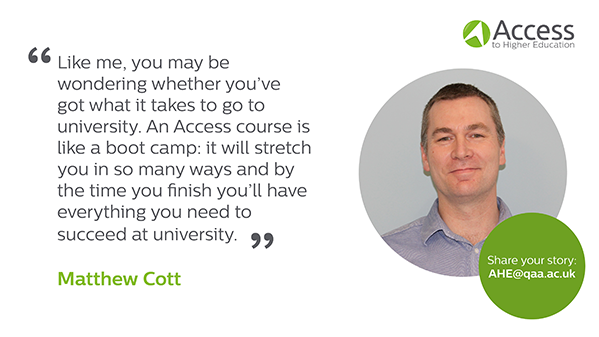
How to apply to university
- Put UCAS application deadlines on the calendar
- Research and shortlist courses
- Shortlist universities (and go to the open days)
- Prepare Personal Statement
- Make application
Access to HE students entering higher education with an Access to HE Diploma in September 2017:
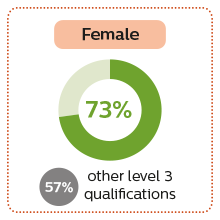
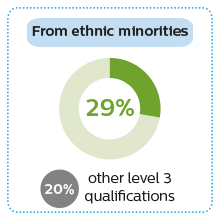
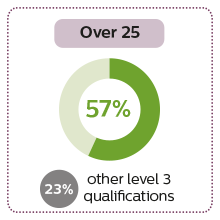
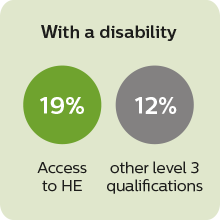
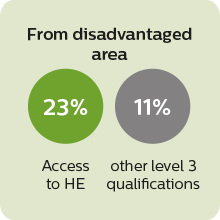
Teachers and tutors
Chat to tutors on your Access course. Firstly, they will be able to offer subject expertise in their specific field and might be able to recommend university courses to look into as a starting point.
They'll also be able to help when it comes to making your application to university - including which elements of your current studies admissions tutors will be impressed by, how to make the most of skills and experiences on your application and personal statement, and how to juggle childcare and work with higher education.
Careers advice
Looking for bigger picture guidance? One-to-one help from a careers adviser will help you plan your next move and longer-term goals. Make the most of careers services in your area. Your college may have its own careers department, or arrange time to speak to a careers adviser via the National Careers Service. Call 0800 100 900 (8am–10pm, Monday to Sunday).
Open days
Nothing beats going out and getting a 'feel' for whether you're going to fit in somewhere - that's where a university open day can be invaluable. A successful open day trip is all about the preparation. Plan ahead by:
- getting an idea of the layout of the campus - download or print out a map
- working up a rough plan - book anything you need to in advance, including subject talks, sample lectures, taster sessions or department visits
- writing down questions you need answers to - print out one of Which? University's free open day question checklists for the subject you're interested in.
If you can't get to an open day some Access Validating Agencies run admissions fairs where you can go and talk to staff from different universities. Visit our events page to find out if there is one near you.
Online
There's plenty of information out there online on university courses and applying - here are some of the more useful ones.
Which? University: the free, independent guide to choosing and comparing degree courses and universities from Which?. Use personalised search filters to find courses that match your expected grades and subject interests, and explore university and college profiles which are packed with real-life views from students
UCAS: the official source of university application information, and where you'll need to go to submit your application to many courses.
Unistats - the official website for comparing UK higher education course data.
Student finance: government information on funding and advice, including for mature students and students with dependents.
The Student Room: comments and chat on all aspects of going to university for students and by students, with forum threads about most of the big universities.
University prospectuses
Whether you're flicking through the printed item or browsing university websites, these can be a good way to find out more about courses you’re keen on and dig into the detail. You’ll also find information on financial support such as bursary and scholarship schemes you could be eligible for.